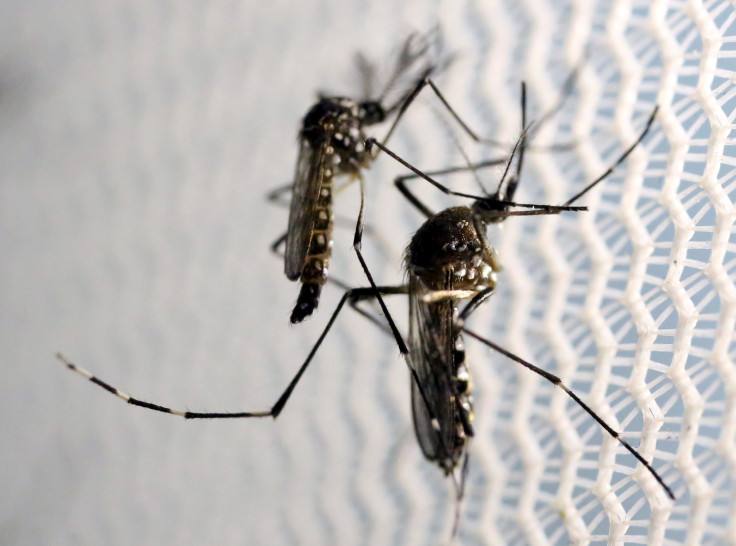Zika Virus Vaccine Being Tested By NIH Can Potentially Prevent Future Infections

There are over 50 countries and territories around the world with active Zika virus transmission. The infection — which primarily transmits from mosquitoes but can also spread via sex — is typically asymptomatic and rarely fatal. But pregnant women are at-risk individuals, as the virus has been linked to serious developmental disorders like Guillain-Barré syndrome and microcephaly.
Thus far, there is no vaccine to prevent Zika or medicine to cure it. The National Institutes of Health (NIH) has commenced the second phase of a clinical trial for a vaccine (called the NIAID Zika virus investigational DNA vaccine) that can potentially prevent Zika infections. The early-stage study will take place at three study sites in the U.S. with at least 80 healthy volunteers ranging in age from 18 to 35.
“A safe and effective vaccine to prevent Zika virus infection and the devastating birth defects it causes is a public health imperative,” said Anthony S. Fauci, director of NHS’s National Institute of Allergy and Infectious Diseases (NIAID), in a statement. “NIAID worked expeditiously to ready a vaccine candidate, and results in animal testing have been very encouraging. We are pleased that we are now able to proceed with this initial study in people. Although it will take some time before a vaccine against Zika is commercially available, the launch of this study is an important step forward.”
According to the Centers for Disease Control and Prevention, it is “likely” that an individual is protected from future infections once they have been infected by the virus. This is a key element in how the new vaccine works, as it essentially introduces the virus to the body so an immune response can create antibodies.
Specifically, the vaccine contains a plasmid, a piece of DNA, with genes that code for Zika virus proteins. The vaccine is injected into the arm muscle of a patient, where cells read the gene and start producing Zika virus proteins that self-assemble into particles reminiscent of the virus. Since the vaccine does not contain actual infectious elements, it cannot infect a person with the virus. The patient’s body then produces antibodies and T cells that fight off the virus proteins and, in theory, will keep the individual ready for a future infection.
“A team of scientists here at NIAID worked tirelessly to rapidly develop this vaccine for clinical testing,” said John Mascola, director of NIAID’s Vaccine Research Center, in a statement. “DNA or gene-based vaccines induce antibodies, but they also can activate the cell-mediated immune response, which ultimately could yield strong and durable protection against disease.”
There is a possibility that phase 2 of the clinical trials may be delayed since funds are running low, according to the Obama administration. According to the secretary of Health and Human Services, Sylvia Burwell, the finance issues means people will have to wait longer for a vaccine.
© Copyright IBTimes 2024. All rights reserved.






















